|
COUNCIL OF EUROPE DEMOCRACY DEBATES
|
|
The
Democracy Debate series has been initiated by the Secretary
General in order to stimulate in-house reflection and discussion on the
developments and challenges affecting our societies, thereby
fostering innovative thinking and action within the
Organisation helping to forge the role of the Council of Europe
as a laboratory for new concepts and ideas on democracy.
|
|
|
Between 2011 and 2012, eight Democracy Debates took place at the Council
of Europe Headquarters in Strasbourg. The first
2012 debate (sixth Debate) was introduced by Ayşe Kadioglu on
Friday, 16 March. During the 2011 season, Democracy Debates
have been given by Ziga Turk (5 April), Zygmunt Bauman (16 June),
John Keane (5 July), Ivan Krastev (24 November) and Jacques Rupnik
(13 December).
All publications are included in publication
"Democracy
on the precipice " |
|
Inaugural Debate
Strasbourg, 5 April 2011
"Europe in times of change: Governance,
democratic empowerment and the information age"

Ziga TURK
|
Professor Ziga Turk
is former Minister for Growth in the Slovenian Government and former
Secretary General of the Reflection Group on the Future of Europe,
chaired by Felipe Gonzales.)
Abstract
"The world is
not changing gradually, but with unprecedented rapidity through five
grand transformations: (a) Abundance and automation, (b) the rise of
BRIC and globalization, (c) climate change and energy revolution, (d)
demographic changes and (e) electronic information and communication
technology. (...)
Text of speech |
5th Debate
Strasbourg, 13 December 2011
"Europe and
the Democratisation of its Neighbourghoods"

Jacques RUPNIK |
Jacques
Rupnik is a political scientist and
historian specialising in central and eastern European issues.
He is Research Director at FNSP/CERI
(National Foundation of Political Science / Centre for
International Studies and Research), Paris, and Visiting
Professor at the Collège d'Europe, Bruges. A Director of the quarterly Review
Transeuropeennes,
he has been a Professor at the Institut d'Etudes
Politiques de Paris since 1982 and an advisor to the
European Commission since 2007. He is the Chairman of the club 'Grande Europe'".
Among his most
recent publications :
(with Ch.Lequesne) 1989 :Europe and
the World transformed, London, Routledge, 2011 ; Les
banlieues de l'Europe. Les politiques de voisinage de l’Union
européenne, Paris,
Presses de Sciences Po, 2007 ;L'Europe
des Vingt-Cinq. 25 cartes pour un jeu complexe, (avec
Christian Lequesne), Paris, Autrement, 2004 (nouvelle ed.
2005).
More on Jacques Rupnik
|
|
2nd Debate
Strasbourg, 16 June 2011
"What
is Central in Central Europe ?"

Zygmunt BAUMAN
|
Zygmunt Bauman treated his audience to a
tour d'horizon on how Europe’s global role today should be based
on our success in convincing former enemies that the future is shared
and to be built collectively. This is the European model and its roots
encompass central and eastern Europe as much as western Europe.
webcast
Text of speech |
Sixth Debate
Strasbourg, 16
March
2012
"The role of Islam
in the democratic transformation of Arab countries"

Ayşe
Kadıoğlu
|
AyĹźe KadioÄźlu is a Professor of Political Science at
Sabancı University, Istanbul. She holds a PhD in Political Science,
Boston University (1990), MA in International Relations, The University
of Chicago (1984) and a BS in Political Science, Middle East Technical
University (1982). She was one of the nine members of the Group of
Eminent Persons of the Council of Europe that drafted the report 'Living
together in 21st century Europe – Combining Diversity and Freedom in
21st Century Europe'.
She is the author of three books and of various
articles in scientific journals e.g. Middle East Journal, Middle Eastern
Politics, International Migration, Muslim World, Citizenship Studies,
Critique: Critical Middle Eastern Studies, Middle East Law and
Governance. She is the co-editor (with Fuat Keyman) of Symbiotic
Antagonisms: Competing Nationalisms in Turkey.
More on Ayse Kadioglu
|
|
3rd Debate
Strasbourg, 5 July 2011
"Democracy
in the Age of Google, Facebook and WikiLeaks"

John KEANE
|
John Keane is Professor of Politics at the University of
Sydney and at the Wissenschaftszentrum Berlin (WZB).
He is the Director
of the recently founded
Sydney Democracy Initiative which fosters cross-disciplinary
projects and public policy debates on all matters concerning democracy.
During his many years in Britain, The Times ranked him one of the
country's leading political thinkers and a writer whose work has
'world-wide importance'. He is the author of the recent and widely
acclaimed book Life and Death of Democracy.
Webcast
Text of speech
|
7th
debate
Strasbourg,
3 April 2012
"Europe at Risk: The Cosmopolitan Turn"

Prof. Ulrich BECK
|
Ulrich Beck is Professor for Sociology at the University of Munich, and
the British Journal of Sociology Professor at the London School of
Economics and Political Sciences. Beck is co-editor of Soziale
Welt and of the books Edition Second Modernity at Suhrkamp.
From 1995-1997 he was member of the Future Commission of the German
Government.
His interests focus on 'risk society',
'institutionalized individualization', 'reflexive modernization',
'cosmopolitanism', 'cosmopolitization' and the 'emergence of
cosmopolitan risk communities'. He was the director of a research centre
at the University of Munich (in cooperation with three other
universities in the area), Sonderforschungsbereich - Reflexive
Modernization, financed 1999-2009 by the DFG (German Research Society).
He has been a fellow of several scientific institutions, among others
the Institute for Advanced Study Berlin in 1990-1991.
More on Ulrich Beck
|
|
4th Debate
Strasbourg, 24
November 2011
"Europe in
Crisis: is liberal democracy at risk?"

Ivan KRASTEV |
Political scientist Ivan Krastev is the chairman of the
Centre for
Liberal Strategies in Sofia, Bulgaria.
He is a
founding member and board member of the
European
Council on Foreign Relations.
He contributes
frequently to leading European and American publications such as
The Wall
Street Journal,
Frankfurter Allgemeine Zeitung,
Le Monde,
and
The
Financial Times, among others.
Editor in chief of
the Bulgarian edition of
Foreign
Policy,
his books in English include
The
Anti-American Century
(2007).
Audio
recording
Text of speech
|
8th Debate
Strasbourg, 8 June
November 2012
"Over managed democracy
and its limitations"

Nickolay PETROV
|
Dr. Nikolay Petrov is Scholar in Residence at the Carnegie Moscow Center, where he chairs the programme
'Society and Regions'. He also serves as a columnist for the Moscow Times, a member of PONARS-Eurasia, and a member of the scientific board of The Journal of Power Institutions in Post-Soviet Societies and of the editorial board of Russian Politics and Law.
He is the co-author of Between Dictatorship and Democracy: Russian Post-Communist Political Reform (2004); The Dynamics of Russian Politics: Putin’s Reform of Federal-Regional Relations (2004 and 2005); Putin's Russia: Past Imperfect, Future Uncertain (2010); Over-managed Democracy in Russia: Governance Implications of Hybrid Regimes (2010), and Russia in 2020: Scenarios for the Future (2011).
|
|

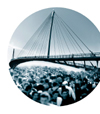
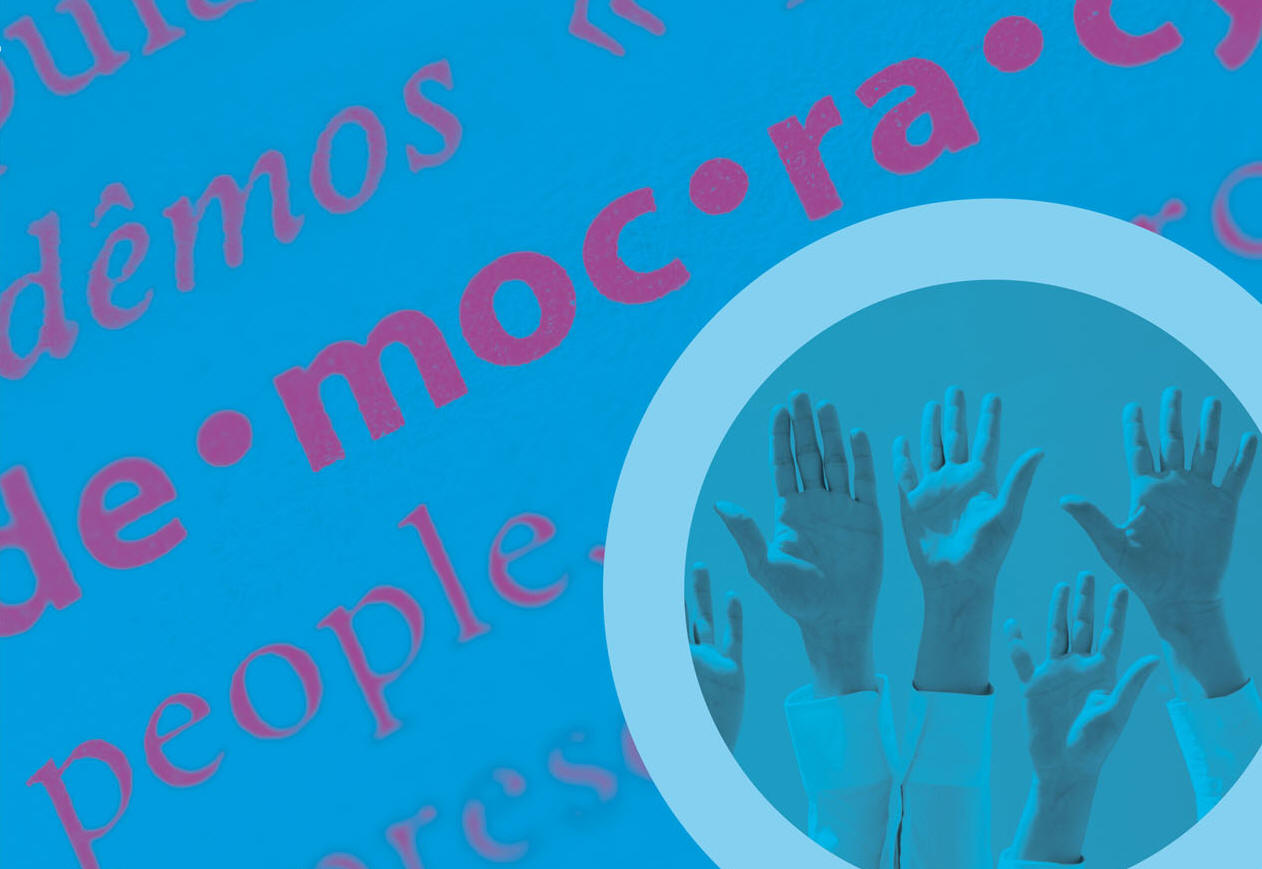
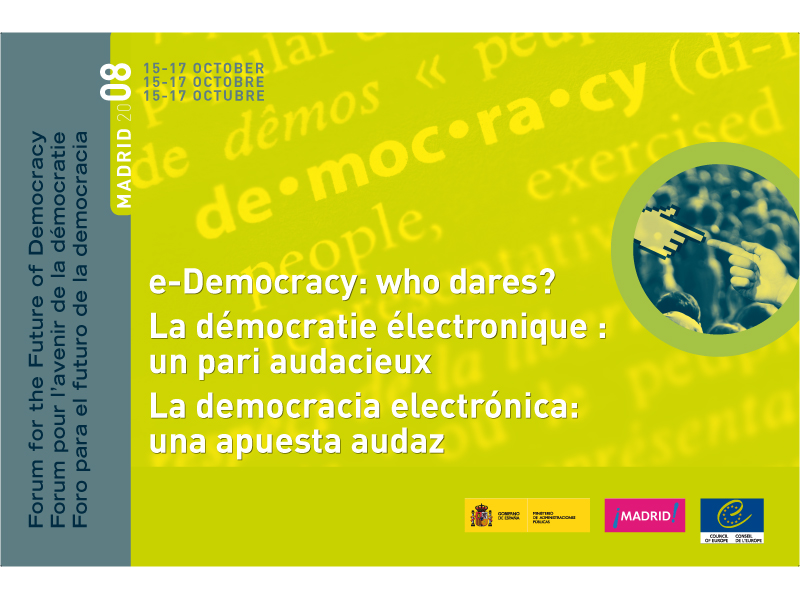
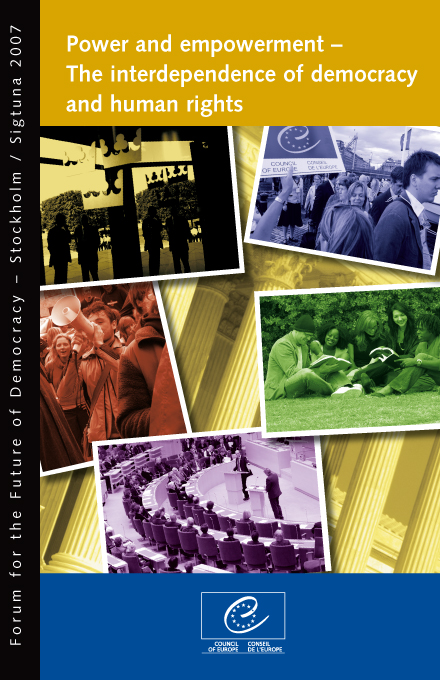
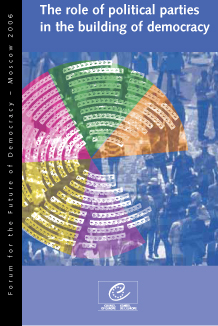
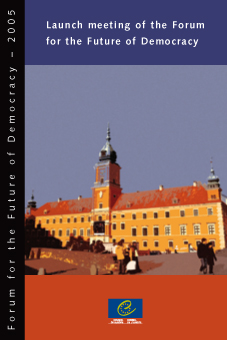
 Print
Print  Send
Send  FRANCAIS
FRANCAIS 






